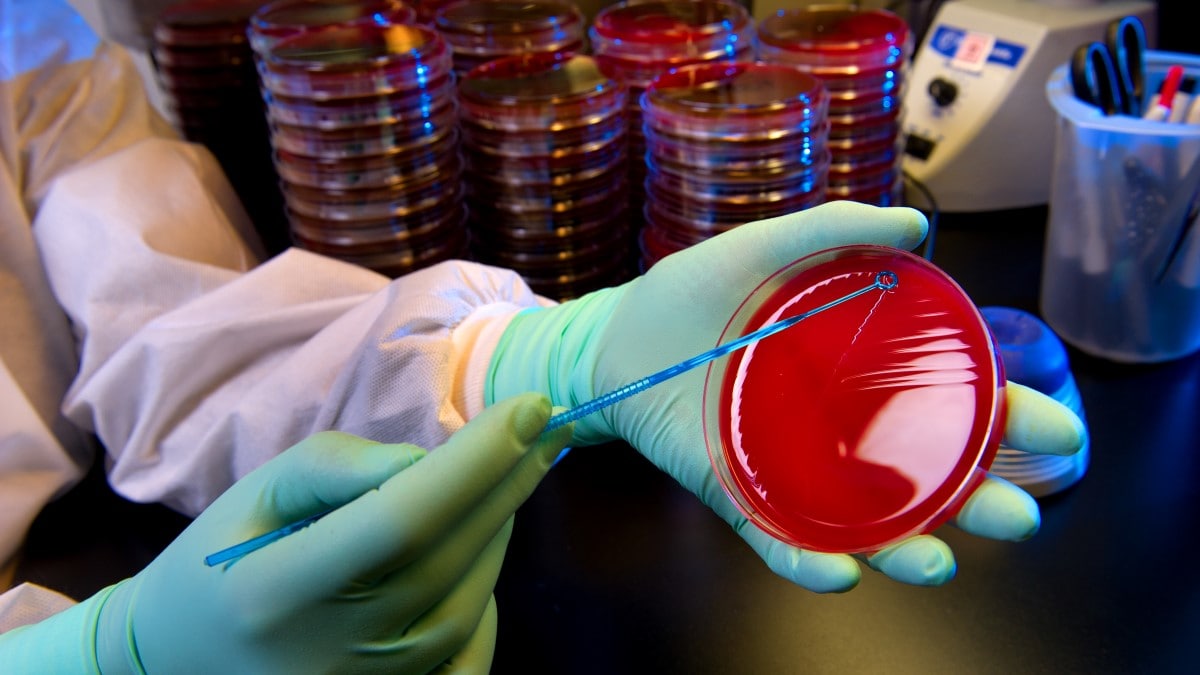Key points
- CDC's Streptococcus Laboratory works on streptococci and other Gram-positive catalase-negative cocci.
- The laboratory is a reference center that supports U.S. health departments and collaborates with many international partners.
- CDC laboratorians can assist health departments and public health laboratory workers upon request.

Priorities
Key activities for CDC's Streptococcus Laboratory include:
- Supporting active population-based surveillance for invasive disease
- Helping U.S. laboratories, including in response to outbreaks
- Building international laboratory capacity
- Researching special topics
Surveillance
Related to its pathogens, the laboratory supports Active Bacterial Core surveillance (ABCs) by performing whole-genome sequence-based typing and characterization of isolates. This work includes:
- Serotyping or emm typing
- Antimicrobial susceptibility testing
- Strain characterization
Laboratory support
CDC's Streptococcus Laboratory supports public health departments and laboratories upon request. The laboratory can type and characterize isolates that meet certain criteria.
CDC can also provide training to public health laboratory staff interested in developing typing capacity using one of the following approaches:
- Polymerase chain reaction
- Whole-genome sequencing
E-mail StrepLab@cdc.gov for more information.
Resources
Related diseases and public health issues
Other laboratory resources
- CDC bioinformatic pipelines for S. agalactiae, S. pyogenes, and S. pneumoniae
- Global Pneumococcal Sequencing (GPS) Project
- Laboratory Methods for the Diagnosis of Meningitis: WHO Manual
- MicrobeNet
- Multilocus Sequence Typing Databases
- Nizet Lab
- Rockefeller University's Laboratory of Bacterial Pathogenesis and Immunology
